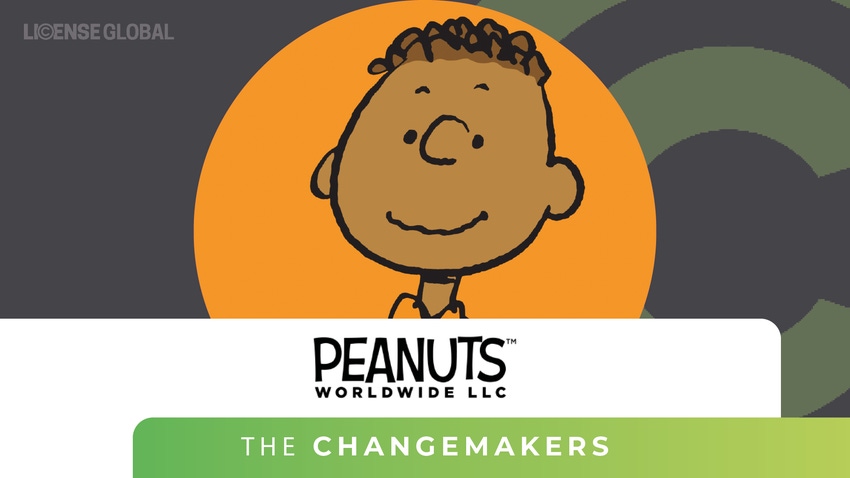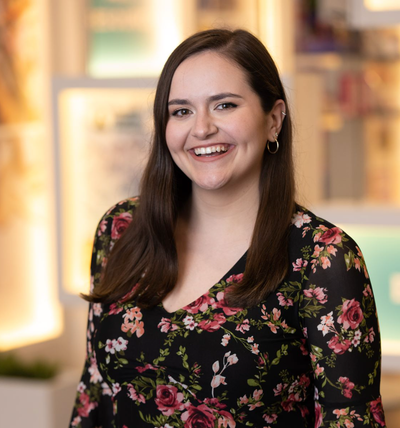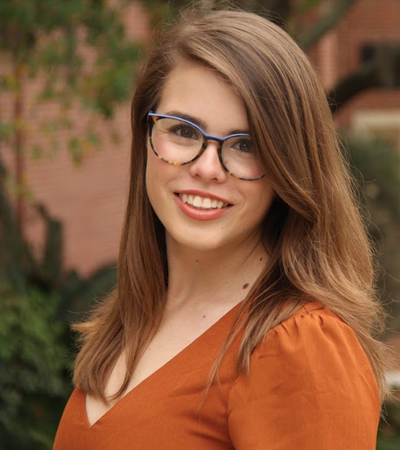The Changemakers: Peanuts’ Franklin
Integrated into the comic strip after Martin Luther King Jr.’s assassination, Peanuts’ Franklin Armstrong has created a legacy for the comic strip. In honor of Martin Luther King Day, License Global sits down with Peanuts Worldwide to discuss that legacy.

The licensing industry has global influence; consumers flock to buy the products the industry creates, and the revenue driven at retail is a substantial factor in a brand’s power to implement change. Some executives harness the power of their position to become what License Global is calling a changemaker, meaning to create the change they want to see in the world, they are uncovering licensing’s potential as a catalyst.
To celebrate the initiatives and individuals behind change, License Global explores how the licensing industry is making an impact on sustainability, diversity and inclusion through a monthly insight column called “Changemakers.”
For this installment, rather than an executive, License Global is highlighting a character: Franklin Armstrong from the Peanuts franchise. Since his introduction, Franklin has expanded in the world of Peanuts to become a fan favorite.
The integration of Franklin was more than just the drawing of a figure. Immediately after Martin Luther King Jr.’s assassination, a schoolteacher, Harriet Glickman, wrote to Charles Schulz – the creator of “Peanuts” – asking him to add a character of color for young Black kids to have something in the media to identify with and relate to.
“I’ve been asking myself what I can do to help change the conditions in our society which led to the assassination, and which contribute to the vast sea of misunderstanding fear, hate and violence,” she wrote. “It occurred to me today that the introduction of black children into the group of Schulz characters would help in shaping the unconscious attitudes of kids.”
Schulz originally declined her request because he didn’t want the integration to look like tokenism. Glickman continued to write him letters asking him to fulfill the request. Eventually, Schulz conceded and added Franklin, the first black character, into the comic strip. Franklin wasn’t given a last name until the early ’90s after the cartoonist and creator of “JumpStart,” Robb Armstrong, a protégé and a lifelong friend of Schulz lent his surname to the character. Being one of only four Black Americans in the cartoon business in the ’90s, Armstrong and Peanuts Worldwide aimed to increase those numbers with an initiative called The Armstrong Project. This gives students from historically Black colleges access to scholarships for studying animation and related fields, as well as mentorships and internships with Peanuts, Armstrong and other executives and companies involved in the project.
Recently, License Global had the ability to sit down with Peanuts Worldwide and two Armstrong Project scholarship recipients: Arthur Green of Hampton University and Jasmyn Marsh of Howard University. Marissa Nance, founder and chief executive officer, Native Tongue Communications, who works with Peanuts Worldwide on The Armstrong Project, was also able to provide insight.
License Global: Franklin inspired a scholarship initiative called The Armstrong Project. Tell us more about this initiative and what it aims to do.
Peanuts Worldwide: On July 31, 1968, Peanuts became one of the first integrated comic strips when Charlie Brown met Franklin on the beach. Over the next 50+ years, Franklin grew to be a beloved member of the Peanuts gang, appearing in numerous strips, television specials, “The Peanuts Movie” and now “Snoopy in Space” and “The Snoopy Show.” The Armstrong Project is an enhanced scholarship program, which designates one student at each of two Historically Black Colleges and Universities (HBCUs) as the recipient of a $10,000 scholarship, mentorship and possible internship opportunities. The project launched for the 2021-2022 school year with students at Howard University and Hampton University. Peanuts Worldwide works with the schools to identify students in arts or communications programs, with the expressed goal of reaching students with an interest in animation or entertainment. Crucially, these students will also receive mentorship from individuals at Peanuts Worldwide, Charles M. Schulz Creative Studios and/or WildBrain. These students will also receive preferential status for internships and employment opportunities.
Armstrong Scholars, how did you hear about this project and what encouraged you to apply?
Arthur Green: I heard about the Armstrong project from one of my friends. He told me to go talk to one of the professors who would know what to do with it, and they gave me the application. I had also met a person who had received the scholarship before me, Promise Robinson.
Jasmyn Marsh: I’m actually really close friends with the previous recipient, Haley Cartwright. I found the opportunity through her and my advisor.
What connection do you have to the Peanuts comic strip, and what did receiving this opportunity mean to you?
Green: I didn’t really read much of the comic strip since I didn’t really read newspapers when I was little, but I mainly grew up watching the Thanksgiving and Christmas specials. I really love those and also listening to the music from those as well, and it got me into Peanuts. I always really liked it, and then getting this opportunity from Peanuts, I was really surprised, and I didn't completely understand how big it was until we actually went to Santa Rosa and then I got to see everything.
Marsh: Likewise, I wasn’t too familiar with the comic strips, but I was first introduced to Peanuts through “The Charlie Brown Christmas Special,” and specifically the soundtrack. I remember hearing the soundtrack first, before actually seeing the movie or the short because my dad, he’s really into music and every Christmas holiday we’d play it. So, to get into this opportunity was like a full 360 moment for me, and when we got to go to Santa Rosa and we spoke with one of the art historians, Sarah, we saw the original script and it was so crazy to experience. I’m definitely grateful.
What do you hope to do with your career after being an Armstrong Scholar?
Green: For me, I’m still in the process of narrowing exactly what I want to do, but I’m leaning towards the area of production, specifically for animation production. That’s mainly the thing I would think I would like to do with this.
Marsh: My major is animation, and with being in the environment with Peanuts, what really stuck out to me was the wholesome aspect of it, like being actually on the campus and talking to everybody. I really appreciated the family value and the warmth that I felt there, so if there was one thing that I could carry from anything regarding that experience, it would be having that same mindset and the passion to continue to keep the Schulz legacy alive, just making sure I apply those ideals to my own work and hopefully I’ll be able to inspire generations of families like Charles Schultz did. The one thing I would draw from on that and the reason for the importance of this scholarship, was the representation of African Americans and animation. I want to bring more of us to the table and tell more of our stories. I would like to further emphasize the story of Franklin, because I know when I won this opportunity and I told people about it, they didn’t know his name. They didn’t know his history, and I was happy that I actually got to share more about and learn more about Franklin and The Armstrong Project. It’s a really cool story and hopefully people will look more into knowing who Franklin is.
Why is The Armstrong Project important to the next generation of IP creators?
Marissa Nance: If I were to say anything, I'm going to say as an agency, I love having Peanuts as partners and allies, forever and always going to bat. I love the fact that this client, this partner, Peanuts, is always about the action and the things we do are so positive. This is an important conversation; this is an important initiative and it’s something we’re behind and it’s something we support. I think, in a world today where so many things are happening, actions speak a lot louder than words. I’m just so happy that our scholars could get some visibility, and if you look at these two smiling and shining faces, you can see it in action right in front of you.
About the Author(s)
You May Also Like










